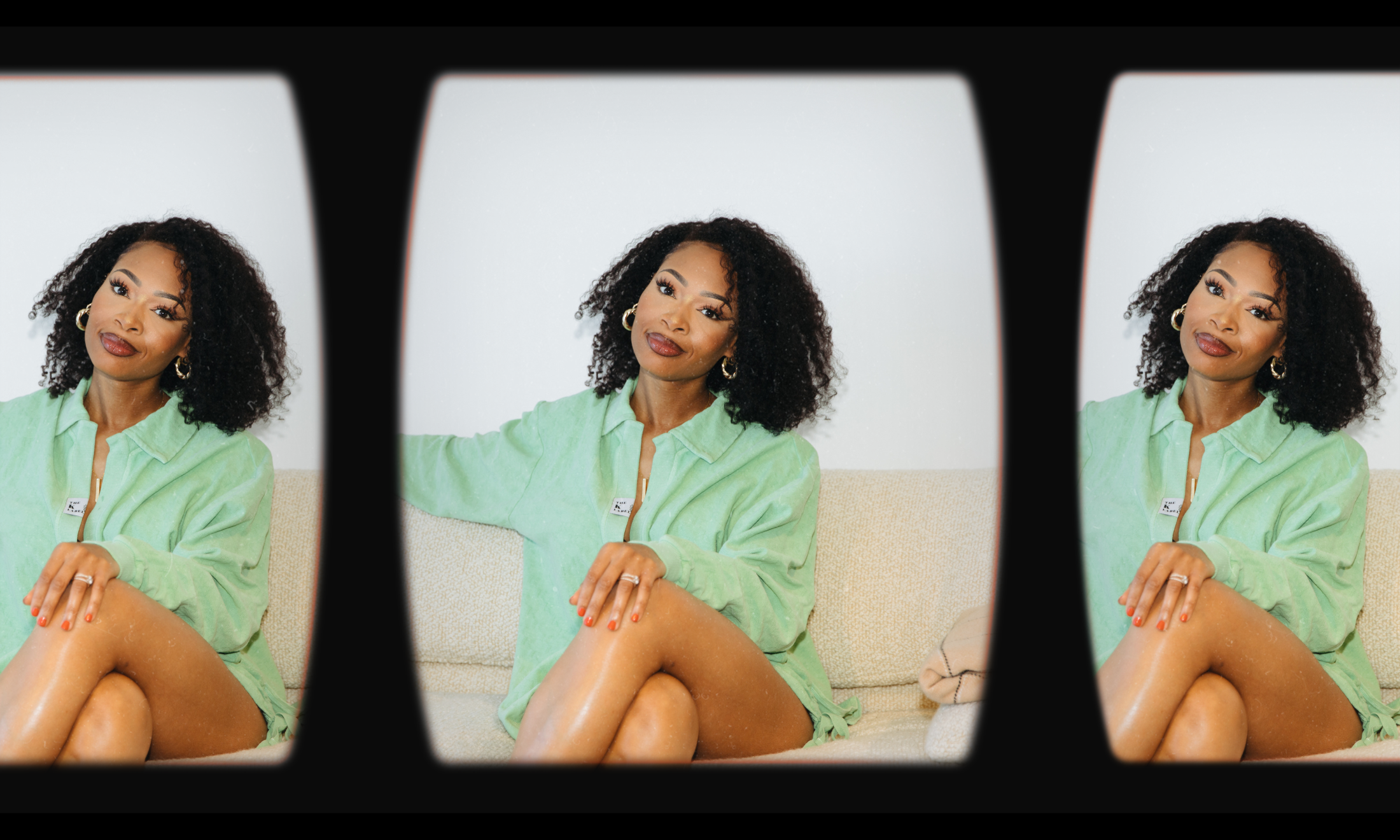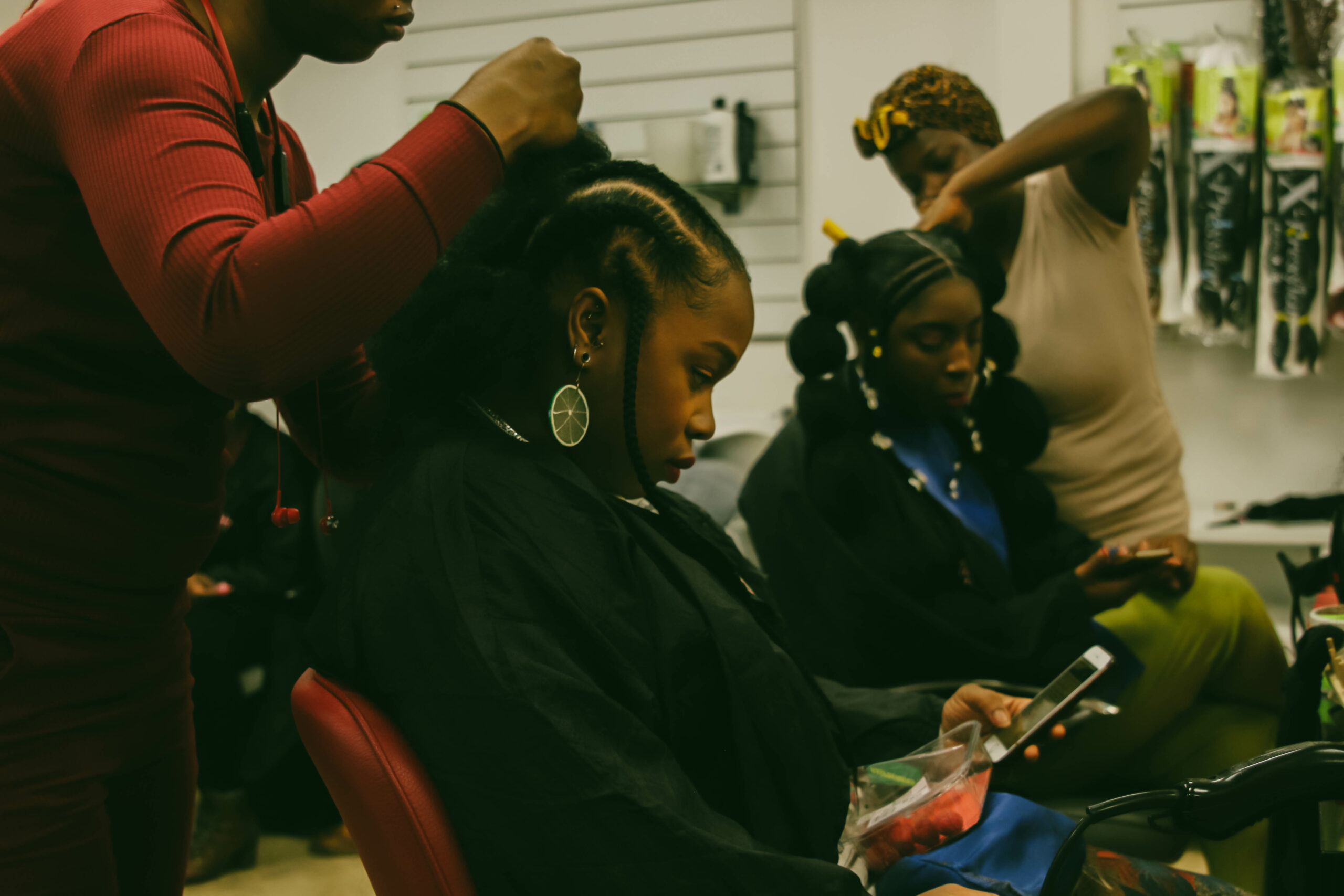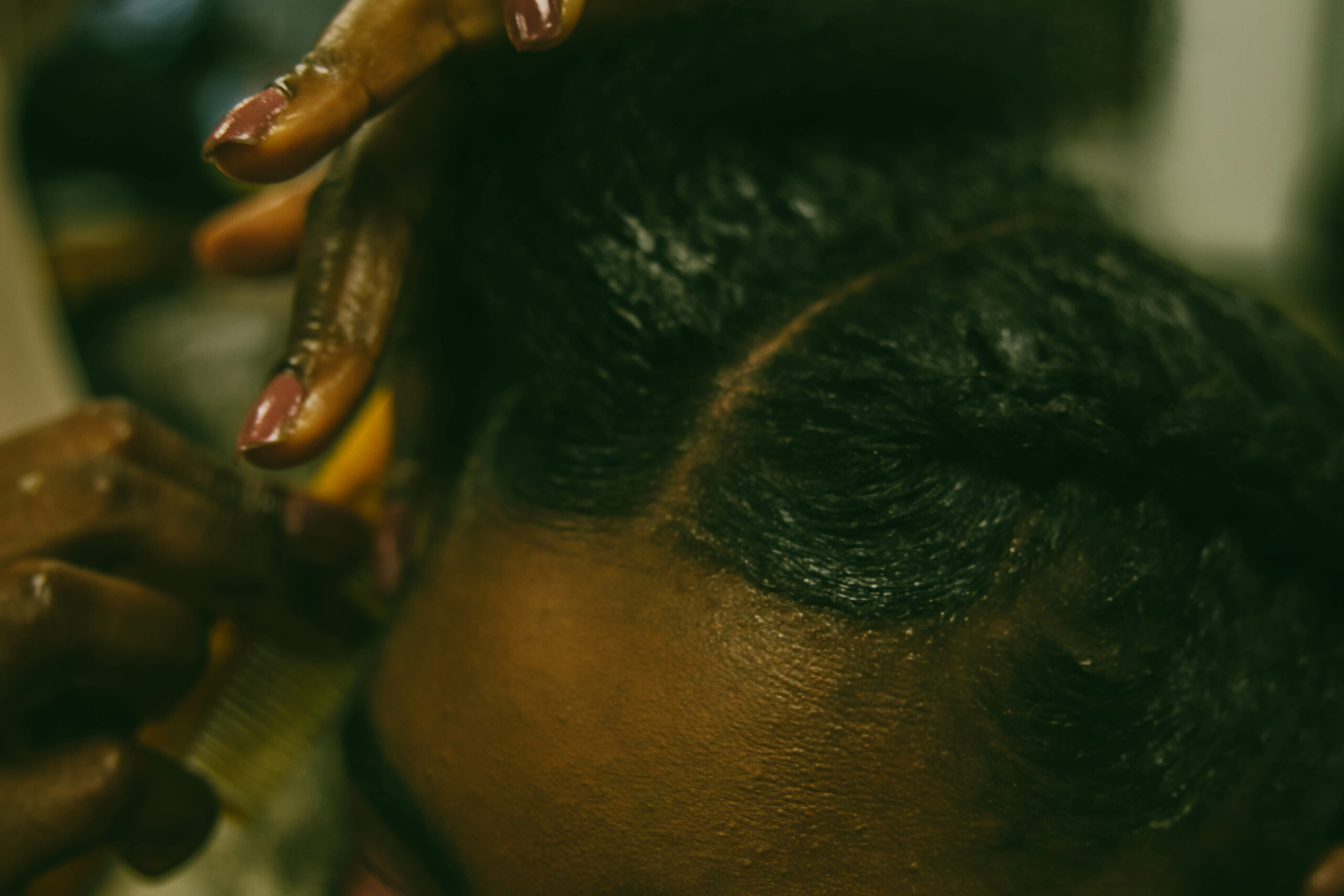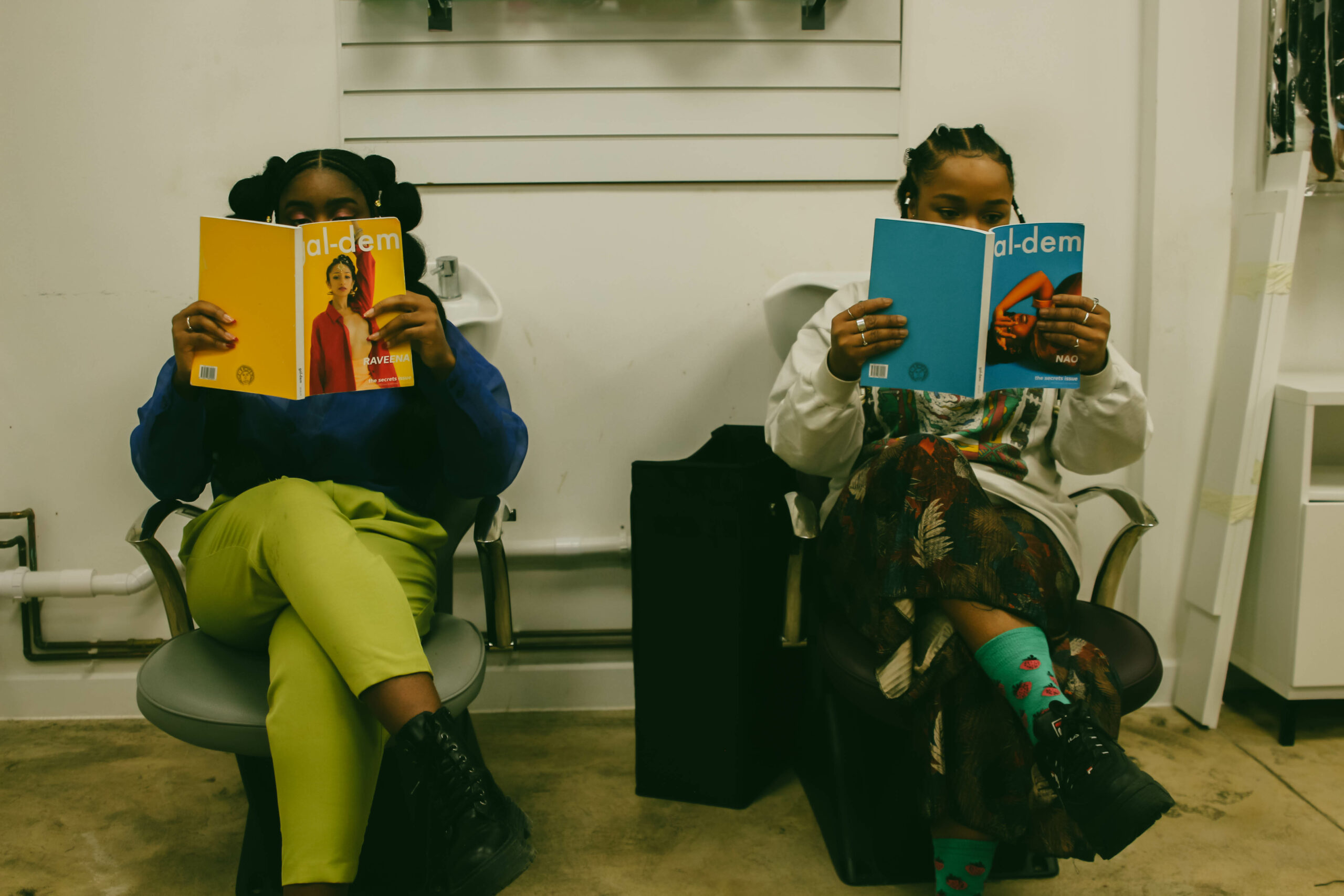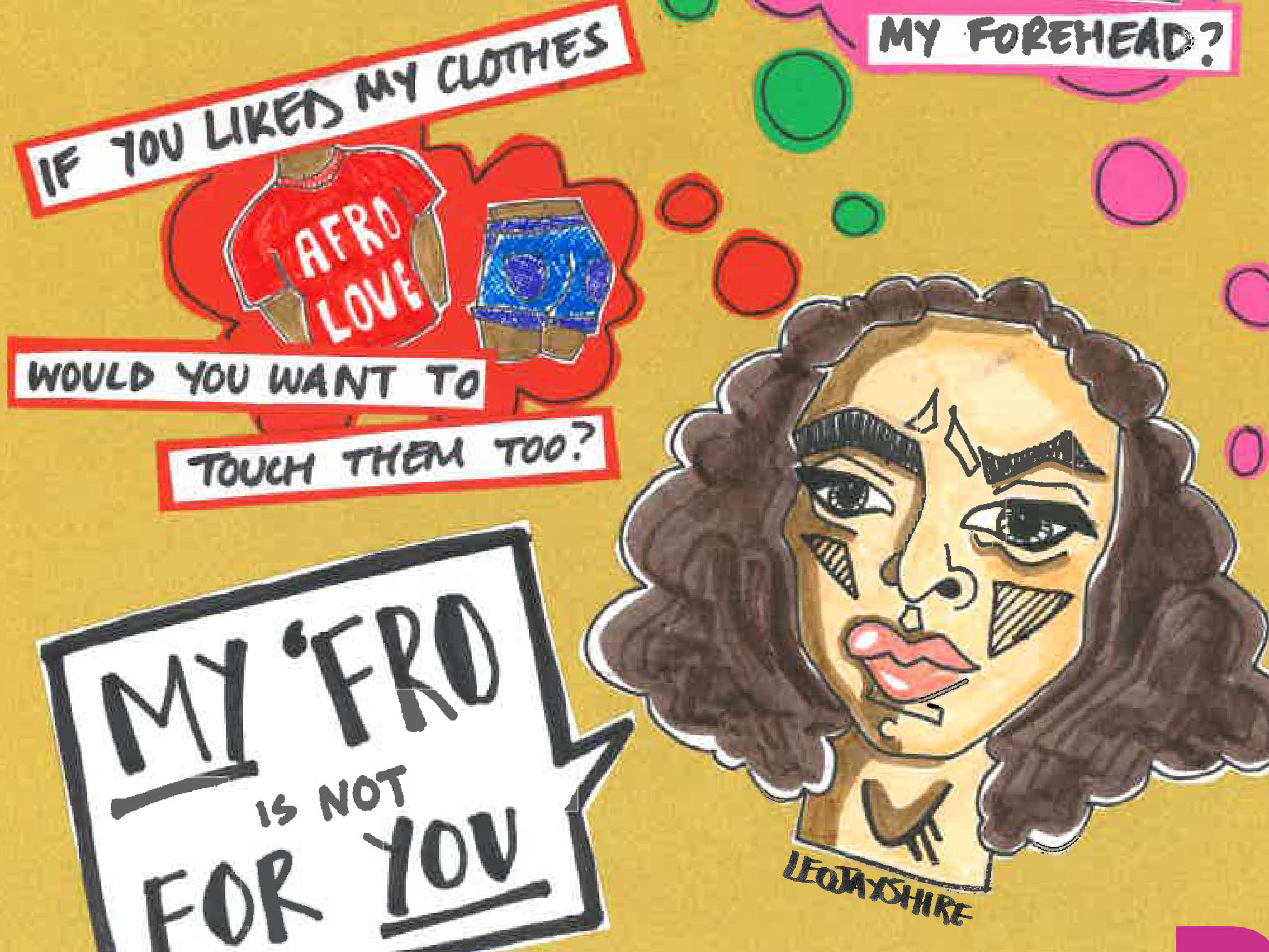
I recently went back to visit my university town of Aberystwyth, in mid-Wales. This was to celebrate my birthday with another friend, who shared a birthday near mine, and our good friends.
I had lived in the multicultural London bubble all my life, so moving to Aberystwyth is where I naïvely first discovered the uncomfortable fascination with my hair. I had never taken into consideration that I was the first black person many of my peers had come into contact with on a personal level and thus I was often used as some sort of social experiment.
Understandably, many of the questions I received about my hair were out of curiosity; for instance, coming back after summer term with long box braids instead of my normal hairstyle of a high-bun, a friend asked: “Oh wow! How did you grow your hair so long over summer?” as if I had somehow acquired the growth rate of a bamboo. Sigh.
This time I was coming back to Aber with my hair mint-green in a mixture of twists and braids (yes, I got lazy). That night, I had barely been in the bar long enough to get a drink when a horde of drunk freshers girls all began to stumble towards me with their arms outstretched like apocalyptic zombies. They began lifting and pulling at my hair, while squealing and clapping about how much they just loooved the colour. And, in that instant, I had been reduced to nothing more than a petting zoo for the curious white folk to poke and prod in fascination.
Firstly, it’s just common courtesy and common sense to not touch strangers and keep your hands to yourself; we are literally taught that in nursery. Don’t come into anyone’s personal space and start grabbing at them. Surely that is a given?
Secondly, I don’t owe you a long PowerPoint presentation on my hair; I’m trying to dance with my friends, not listen to a shoddy anecdote about your sister’s best friend who also happens to be black and works in a salon.
Thirdly, if you don’t know anything about my hair don’t try and guess – it’s a bit embarrassing. The “Gurrrl I love you weave”, when it’s your natural afro or, “wow your dreads are wicked”, when in fact they’re boxbraids, is a bit cringe.
The next evening, at one of the biggest nights Mid Wales had to offer, another white girl in her bucket hat, smacking her lips like Violet Beauregarde, with her bindi’ed friends at the ready, grabbed my hair, without even asking my name or bothering to say hi. She started to talk directly to my braids/twist combo as though it could walk and talk. After telling my hair how cool it was, she proceeded to do the same to my other black friend with colourful twists before pulling us both into a photo like we were a circus act.
Black bodies have historically been a point of creepish fascination for white people. From copying the Hottentot women’s backsides and creating the Victorian bustles, to kidnapping, parading and then later dissecting Saartjie Bartmaan, all in the name of curiosity. And it’s still happening today with the Kylie Jenners of the world wearing cainrows.
Fun fact: Americans call the hairstyle cornrows because enslaved African Americans were forced to work in corn fields. On the other hand, British people tend to say cainrows because the British slave-owners predominantly had enslaved people in the Caribbean. There, these black people were forced to work in the sugar cane fields in order for British people to have sweeter tea.
Our hair and our bodies are intrinsically linked to our history and ancestry. They are more than just ‘cool’ or a trend. Our hair is not something for you to steal and badly replicate. If you’re so curious about my hair, use Wikipedia or Google, not me. Maybe there you’ll find out that black women in the US army aren’t allowed to wear their hair the way it naturally grows out of their scalps or about how Eurocentric beauty standards have forced generations of black women to believe their hair isn’t good enough.
By all means, I am happy – if not flattered – by compliments about my hair but please do it with your words and not your hands. Really, the main reason I don’t want you to touch my hair is because I just don’t know where your hands have been.

